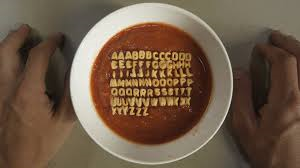Obsessive Compulsive Disorder is a disorder in which causes anxiety and unneeded compulsions, disturbing thoughts and/or obsessions. Most adults and teens have OCD. Although children can get/have OCD also. OCD can interfere with people’s daily routines and lifestyles. It effects people in many ways and can also affect others around you. There are different types of obsessions that people with OCD can have.
Some obsessions people with Obsessive Compulsive Disorder have are things like self-harm or harm to others, a need for everything to be perfect like their books being perfectly stacked or there room being perfectly clean, another popular one is contamination. Like someone being afraid of germs or being contaminated so they are always cleaning things. People can also have unwanted forbidden thoughts that they don’t want to have like having thoughts of being gay or bisexual when they know they aren’t or having images in their mind of engaging sexual contact that they find is gross or unwanted.
 People with OCD can have odd compulsions to. For instance checking door locks or windows to make sure they feel safe. Or in some cases counting things, or consistently tapping or rubbing certain objects. There is also compulsions like organizing and arranging things so they know they will be perfect. There’s also things like mental rituals that mostly teens and children will do like saying a certain prayer before bed over and over again until it feels right or safe.
People with OCD can have odd compulsions to. For instance checking door locks or windows to make sure they feel safe. Or in some cases counting things, or consistently tapping or rubbing certain objects. There is also compulsions like organizing and arranging things so they know they will be perfect. There’s also things like mental rituals that mostly teens and children will do like saying a certain prayer before bed over and over again until it feels right or safe.
Those are some compulsions and obsessions that you can have from OCD. Here are some signs that show you could possibly have it. Some of them are physical and some are thoughts, emotions and behaviors. You could be asking yourself “Am I attracted to that guy? Does that mean that I’m gay?” Or “If I feel sick should I not touch other people?” You can also have physical feelings like shallow breathing, dizziness, muscle tension, and a racing heartbeat. Some emotions you could have that are unusual that show you might have OCD are anxiety, fear, shame, or guilt. You can also have odd behaviors like asking parents for extra cleaning supplies, or avoiding touching doorknobs or handles.
In the end Obsessive Compulsive Disorder involves many obsessions, compulsions and other things that can impact your life and other peoples. Yes you can treat Obsessive Compulsive Disorder with medication and therapy but it is still pretty bad. It cannot be prevented which is also a down side to this disorder. There are no up side’s tO having OCD. People with Obsessive Compulsive Disorder are just like everyone else they just have to follow certain “traditions” on a daily basis to function correctly or to not go crazy.
“Obsessive Compulsive Disorder.” AnxietyBC. AnxietyBC, 14 Nov. 2014. Web. 20 Oct. 2015.
Storrs, Corina. “10 Signs You May Have OCD.” Health.com. Health Magazine, n.d. Web. 21 Oct. 2015.
“OCD in Children and Adults: Symptoms, Causes, and More.” WebMD. WebMD, n.d. Web. 21 Oct. 2015.